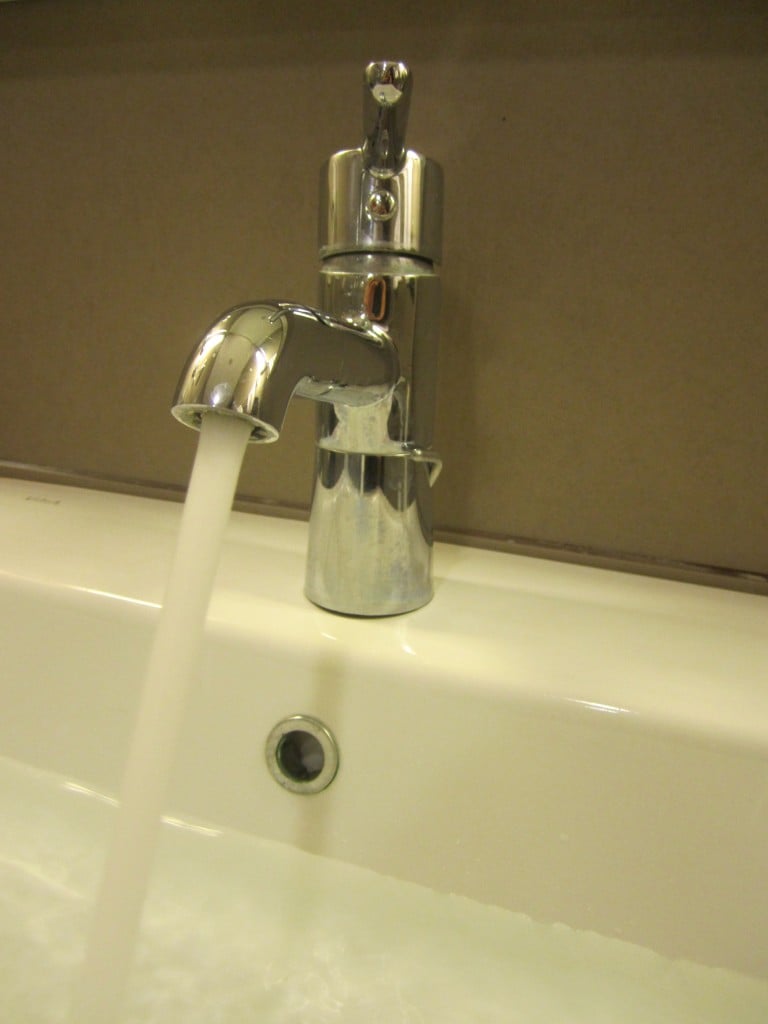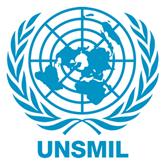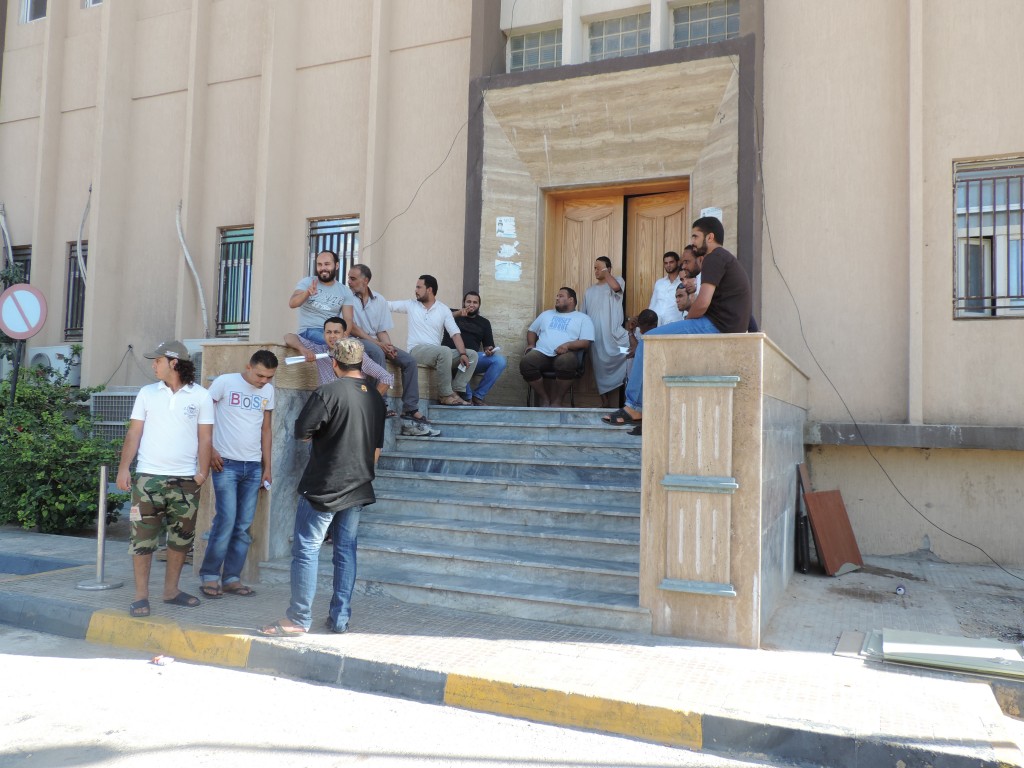News from 9/13......
Oil.....
Security.....
News from forgotten Libya...... 9/12...
Water.......
http://www.libyaherald.com/2013/09/12/protestors-threaten-to-cut-communications-to-the-south/#axzz2ejE2gnzg

Oil......
Oil.....
Low oil production threatens public sector salaries
By Ahmed Elumami and Tom Westcott.
Tripoli, 13 September 2013:
The oil strikes that have brought the country’s oil production down to just 230,000 barrels per day (b/d) are threatening the payment of public sector salaries.
A production rate of 397,000 b/d is required to pay salaries alone, a member of the GNC Energy Committee, Sulaiman Gajam, told the Libya Herald. He added that, unless production quickly climbed back up to this figure, by the end of the year there would be a problem with paying salaries.
“Of course there will be a big shortage in paying the salaries because of shutting down the oil fields and terminals all over Libya,” Planning Department Manager at the Ministry of Oil, Samir Kamal, told the Libya Herald. He said the Ministry of Oil and Gas hoped that the Libyan government would give priority to salaries.
Income from oil exports went to the Finance Ministry, Kamal said. On Wednesday Finance Minister Abdelkarim Kilani said that he estimated that the financial losses from the closures of the country’s oil fields and export terminals were around LD 200 million a day. He added that these losses were non-recoverable.
There are concerns that the strikes will affect Libya’s position in the oil market, sending buyers elsewhere. This could have a knock-on effect on the country’s sales of crude next year, Kamal said.
$130 million oil revenue loss per day will affect budget: Finance Minister Kilani
By Sami Zaptia.
Tripoli, 13 September 2013:
Asked if the loss of oil production as a result of the armed blockades of Libya’s oilfields would affect the disbursement of the 2013 budget, Finance Minister Abdelkarim Kilani said that inevitably, the loss of oil production would “affect revenues for the budget”.
Speaking at Wednesday’s press conference, Minister Kilani said that Libya was suffering a $130 million per day (LD 200 million) loss as a result of the strikes.
Moreover, he stressed that even if the strikes were ended, “this revenue would not be recovered”.
Security.....
Diplomatic protection unit will be effective soon: Acting Interior Minister
By Sami Zaptia.
Tripoli, 13 September 2013:
At Wednesday’s press conference Prime Minister Ali Zeidan responded to media criticism that the so-called Diplomatic Protection Unit was in reality ineffective at doing its job of protecting diplomatic sites in Tripoli.
One member of the media said that during a visit to the Diplomatic Protection Unit’s headquarters it was found lacking in personnel, equipment or arms. The location itself was found to be in poor condition.
Acting Interior Minister and Deputy Prime Minister, Sidiq Abdelkarim, said that the Diplomatic Protection Unit “will be activated in reality and it must be an effective unit soon”.
Zeidan, on the other hand, said that he had personally been responsible for the delivery of 100 vehicles in one day to the Diplomatic Protection Unit. He had commandeered them from another government department, he explained.
Zeidan said that Libya needed some psychological reorientation. He said that it was as if someone was in the dark for a long time and then was hit by the light suddenly, implying that the problem was in the personnel and not the equipment.
United Nations condemns Foreign Ministry attack and assassinations in Benghazi
Tripoli, 13 September 2013 :
The United National Support Mission in Libya (UNSMIL) has condemned the bombing of the Libyan Foreign Ministry’s offices in Benghazi on Wednesday, calling it as a “criminal” event.
In a statement issued yesterday, UNSMIL also said that it was deeply concerned about the “renewed and escalating assassinations that have targeted members of the security institutions, particularly in Benghazi”.
It called on all parties concerned to double their efforts to ensure that there were “effective and capable state security institutions that can impose security and stability and ensure safety for the citizens and facilities”.
News from forgotten Libya...... 9/12...
Water.......
http://www.libyaherald.com/2013/09/12/protestors-threaten-to-cut-communications-to-the-south/#axzz2ejE2gnzg
Protestors threaten to cut communications to the south
By Ahmed Elumami.
Tripoli, 12 September 2013:
A small group of youths from Zawia Street and elsewhere in Tripoli protesting at the Ministry of Communications at the water stoppage in the capital have threatened to force ministry staff to cut the communications to the south of the country.
They say that if water is not running normally by Friday, they will cut communications on Saturday to Al-Shwairef and Gira, the two towns which cut the water to Tripoli in response to the kidnapping of Abdullah Senussi’s daughter, Anoud.
The protesters also criticised the Prime Minister, over comments he made at his press conference on Wednesday saying that “the Ministry of Communication has been stormed by protesters” and that “nobody has the right to use violence in protests even if he participated in the revolution”.
No one had used violence, they said, and no one from the ministry staff had been hurt, said one of the protesters, Mohaned Mohamed, demanding an apology from the Prime Minister for “tarnishing the revolutionaries’ reputation”.
The Libya Herald reporter was taken inside the ministry by the protesters. It was very quiet and everything appeared to be in its place.
http://www.libyaherald.com/2013/09/12/running-water-coming-back-to-a-tap-near-you/#axzz2ejE2gnzg
Running water – coming back to a tap near you
By Tom Westcott.

Water is back running from taps across the capital after a week of cuts (Photo: Tom Westcott, Libya Herald)
Tripoli, 12 September 2013:
Jubilant cries have been greeting the first sight of water dribbling out of taps across Tripoli today, as the Ministry of Water Resources stayed good to its word that the capital would have water by Friday.
It has been a long week of shortages, with people forced to cut back on basic cleaning and reserve bottled water for essentials. Locals have been resourceful, reusing water from air conditioning units for the toilet, tapping into wells at mosques or homes and stockpiling bottled water, but right now nothing beats the sight of water gushing from a tap.
The supply to Tripoli was stopped on 3 September after members of the Magraha tribe stormed the main pumping station of the Man-Made River (MMR) at Jebel-Hasana. They forced employees to stop work and said they would not allow pumping to restart until the kidnapped daughter of Qaddafi-era spy chief Abdullah Senussi had been released.
Anoud Senussi was kidnapped on 2 September, just after she left Ruhaimi Prison at Ain Zara where she had served a ten-month sentence for entering the country on a false passport. The kidnap was later said to have been executed by Libyan Special Forces, in a move apparently designed to protect Anoud.
The pipeline was finally reopened just two hours after Anoud was returned to family members in Sebha. However, because the pipes were full of air, water had to be reintroduced gradually, to prevent a dangerous build-up of pressure that could have caused an explosion.
For water from the south to reach Tripoli, more than 1 million cubic metres per day needed to be flowing through the pipelines. Today, that target was clearly reached.
Oil......
http://www.libyaherald.com/2013/09/12/oil-production-crawls-up-to-230000-barrels-per-day-most-export-terminals-still-closed/#axzz2ejE2gnzg
Oil production crawls up to 230,000 barrels per day, most export terminals still closed
By Ahmed Elumami and Tom Westcott.
Tripoli, 12 September 2013:
The country’s oil production is now between 230,000 and 236,000 barrels per day (b/d), according to Deputy Oil Minister Omar Shakmak.
He also told the Libya Herald that Brega was the only oil export terminal working. The others remain closed in ongoing strikes over pay and conditions that have brought the country’s oil industry almost to a standstill. Prime Minister Ali Zeidan said yesterday that arrest warrants had been issued for the the leaders of the oil strikes.
At the start of this month oil exports hit a record low, since production restarted after the revolution, of 160,000 b/d.
Although Brega is the only functioning export terminal, it was described as “not very busy” by an engineer on a recent visit to the port. “There were lots of cars but not many people around,” he told the Libya Herald, “It looked like they were producing but not necessarily exporting.”
http://www.libyaherald.com/2013/09/12/arrest-warrants-issued-for-leaders-of-oil-strikes-zeidan/#axzz2ejE2gnzg
Arrest warrants issued for leaders of oil strikes: Zeidan
By Sami Zaptia.
Tripoli, 12 September 2013:
Asked about what action he was going to take against the strikers responsible for stopping Libyan oil production, Prime Minister Ali Zeidan said that the Public Prosecutor had issued arrest warrants for the leaders of the disruption. “Actions will be announced soon and the state will play its role”. Zeidan refused to give any further details.
If Prime Minister Zeidan’s comment, made at yesterday’s press conference, that the Public Prosecutor has indeed issued arrest warrants against the perpetrators of the armed oil strikes, it would be a major move forward by the Libyan state. Zeidan did not reveal if and how the state was going to enforce such a warrant against armed strikers.
With regards to oil production, Zeidan admitted that “now production is very limited”. When challenged by the media to give a production figure, he said that it was “between 200,000 and 300,000 barrels per day”.
“I talk daily to the GNC head Abu Sahmain several times”, he said indicating that he was acting in concert with the GNC. “We gave enough time for social contact and social communications and we were patient – a bitter patience – and we will give a little more time with the GNC which had created the “crises committee”.
“It (the GNC) is working on all social levels across the nation”, he explained referring to the huge effort by the state to resolve the armed oil stoppages without the use of force or spilling of blood.
“But a time will come when we will abandon this”, Zeidan warned. “I direct my message at the tribes and families to correct mistakes where mistakes have been made”, he added appealing to tribal and family elders to intervene.
“The state must play its role”, Zeidan stressed and “all must pardon us (repeated three times for stress) for what will do”, he said giving the impression that the state may take forceful action. “We cannot leave Libya’s fate in the wind. We must take action”, he added.
Giving the matter an international angle, Zeidan added that Libya’s “allies are in contact with us and assured their support to Libya. But we are not alone in the world. We have states and interests behind us”, he said ominously.
“They will not leave Libya to those who take inconsiderate actions. I hope we achieve this without much loss and pain” he concluded in a veiled threat of possible foreign intervention or the spilling of blood.


No comments:
Post a Comment